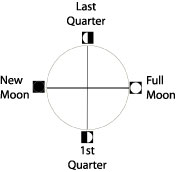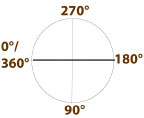Spain, France and England according to Outer Planet Segments: Part I
1398-1892
The title of this piece rightly raises a big question mark. The concepts behind this article are quite simple, the results are dense and rich with meaning.
We can see history in new and useful ways employing basic astrological concepts. One of these concepts is that the farther a planet--and Pluto is a planet for our purposes--the more the planet relates to history and social issues. The next step segments history into spans defined by astrological "measurements". Without fully explaining here why this important, the span we will employ here is the time between the longitudinal alignment of Neptune and Pluto. This gives us a span of 492.5 years, the last span appearing between 1398 and 1892. This division may seem arbitrary but consider the case of the Moon, from which we derive the concepts of month. A lunar month covers the time, from our earthbound perspective, between the longitudinal alignment of the sun and moon. Here we are using the same method to create a “month” that measures 492.5 years.
Next, take this concept of Neptune-Pluto month and break it into a familiar recurrence: the phases of the Moon:

Every month (moon period) the same relationship has appeared across time. The phases, which are a human-made reference, describe the following angular relationship:

Additionally, the seasons, another human-centric reference, describe the same angles.

The Neptune-Pluto “month” of 1398-1892 thus divides into the following segments
1572-1648
1648-1821
1822-1892
That these divisions do not appear in even chronological segments reflects Pluto's non-symmetrical orbit.
This article will show measuring history according to these parameters provides a method to view history in a more connected, meaningful way. In the end, we will understand how Uranus, Neptune and Pluto appear relative to one another provides a logical framework by following basic astrological concepts. Much like a bicycle appears to be a simple machine, when fully understood, this theory translates many complex motions into a unified direction. I simply ask for the latitude to explain many concepts in a short space and hence sacrifice nuance. In the end, filling in the details will be a natural motivation.
For simplicity this exercise limits itself to these three "nations". By looking at how each of these countries developed according to these phases, we will learn that the astrological insight is too rich to ignore. Most convincing will be the manner that all four phases are connected to one another, but different for each country. These nations offer clear examples of how they differ from one another for reason of origin. Spain followed a different track than the other two because of as many reasons that Spain is Spain and not England. Spain was always relatively isolated, its soil was not rich and a terrain not inducive to a connected road structure. England and France had relatively strong monarchies, ones that were ironically connected through inheritance. Each had better access to resources and transportation, factors that helped them excel over Spain, but differently from one another. What will become obvious is how each party develops over time in keeping within astrological expectations, a development with long-reaching applications.
For a different reason Uranus will be part of the discussion. Uranus shows up at every Neptune and Pluto "checkpoint", a fact too concidental to ignore. What will be revealed in the end is how Uranus also helps add a perspective that ties in the Axial Age, the first step toward the secular world of the middle-class. Luckily, our journey begins with pictures.


0 Comments:
Post a Comment
Subscribe to Post Comments [Atom]
<< Home